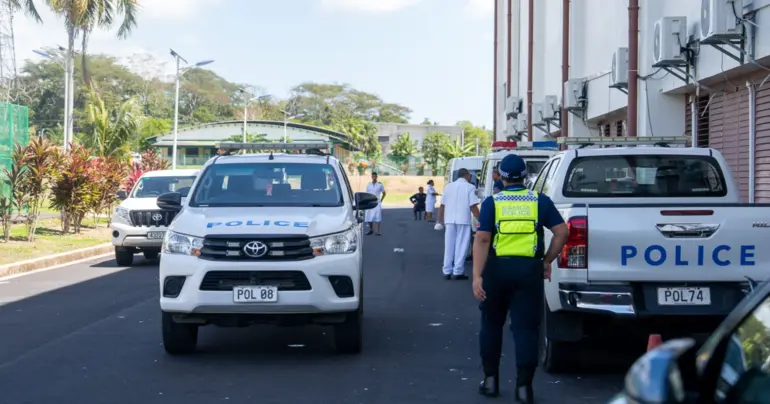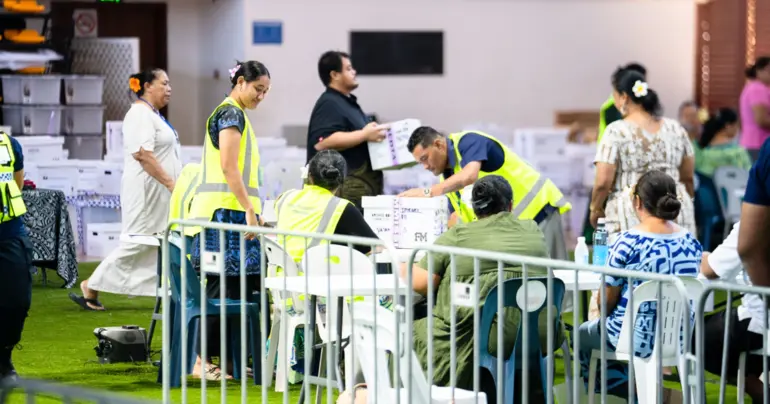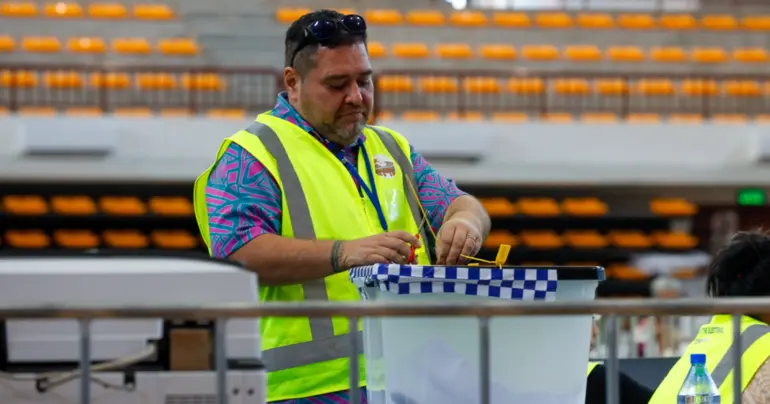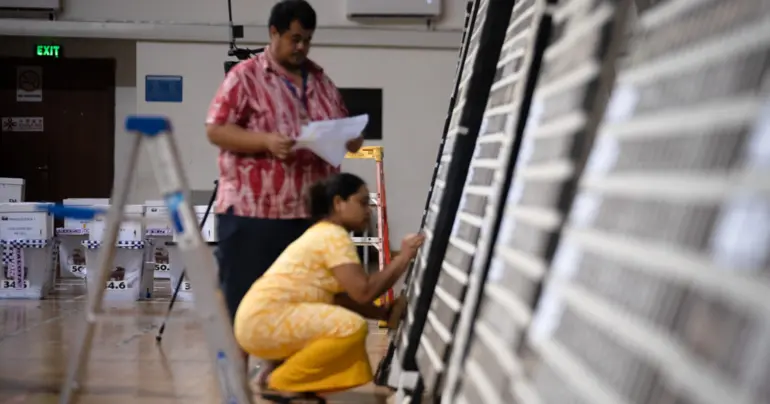Tight election exposes democratic weak spots
 By The Editorial Board
•
22 April 2021, 2:30AM
By The Editorial Board
•
22 April 2021, 2:30AM
Democratic institutions are like sports cars: it is only when moving at high-speed and under stress that their performance is shown.
In the past weeks, Samoa’s have come under extreme strain and many have found to be wanting.
Nearly a fortnight after the election, the country does not have a Government after a political saga that has had more plot twists than a murder mystery novel.
Much of this dragged-out tension has been caused by the intricacies of life in a Parliamentary democracy. Particularly when it produces exceptionally close results, we are reminded of the old saying that democracy is the worst form of Government except for all the others that have been tried.
But late last night we saw an intervention from one of the institutions intended to bring stability to Samoa’s democracy.
There has been an outpouring of praise for the Office of the Electoral Commission following the 9 April poll.
This has ranged from kudos on social media to downright fulsome praise being lavished upon them in the pages of certain media outlets for having overseen an election without incident.
On Tuesday night, though, we saw the commission go from an institution that had been assuring Samoans it was going “overboard” to ensure impartial elections to one that became an active player in shaping their outcome.
In a social media post at the irregularly late hour of about 9.30 pm, the Office of the Electoral Commissioner announced that it would be expanding the size of Parliament to 52 seats and installing an M.P. aligned to the Human Rights Protection Party.
The justification given was that their reasons were grounded in established constitutional law that requires 10 per cent of all elected legislators be women.
But the interpretations of this provision, as explored in today’s edition, are murky.
Five women were elected in this month’s election: a total of 9.8 per cent of all members of Parliament.
While that figure represents a slim shortfall of the threshold, elevating the fully mandated 10 per cent of M.P.s would require 5.1 female legislators to be appointed to the Legislative Assembly.
The law was introduced in 2013: at a time when the house was composed of 49 democratic representatives.
In an attempt to clear up any possible future confusion, the amendment makes provides some guidance on how to resolve difficulties of interpretation.
“Women Members of the Legislative Assembly shall: (a) consist of a minimum of 10% of the Members of the Legislative Assembly,” the clause states.
“Which for the avoidance of doubt is presently 5.”
Social media has been abuzz with dark humour about whether only dismembered members could precisely meet the legal quota and conjecture about the letter of the law.
In any case, the provision is confusing and confusing enough for the Electoral Commission to have wrongfooted itself.
After the election, the commission said that there would be no need to invoke the quota requirement because of the ascension of the five women M.P.s.
Samoa’s Electoral Commissioner, Faimalomatumua Mathew Lemisio, soon performed an about-face on this interpretation.
He said the office was seeking legal advice, particularly on the meaning of the term “presently”.
This brings to mind the case of the American President Bill Clinton who famously told a grand jury that the answer to one of their questions “depends on what the meaning of the word 'is' is.”
But in announcing he was seeking legal advice on the question earlier this week, Faimalo did so with the full acknowledgment that a decision by the commission could be subject to a legal challenge.
“Given that this specific issue is yet to be tested in Court, there is a possibility that it could end up in Court for interpretation,” he said.
Why the Commissioner did not refer a matter of constitutional interpretation to a court earlier has so far gone unanswered.
The commission made much of the years of preparation that went into polling day but evidently, they overlooked the development of consistent procedures for election outcomes.
For its part, opposition party Faatuatua i le Atua Samoa ua Tasi said achieving the quota exactly could never have been possible in the 51-seat XVII Samoan Parliament:
“I am not really a mathematical genius but I think 5.1, you can’t have part of a woman, you have to have a whole woman,” leader Fiame Naomi Mataafa said this weekend.
On Wednesday the party announced it would be mounting a direct legal challenge to the commission's interpretation, declaring it “unlawful” and “unconstitutional”.
"F.A.S.T. believes that the constitution is clear and unambiguous, that the minimum number of women is clearly defined and prescribed in the Constitution as [five]," the party said.
We are shaping up for an election that could be decided in court.
The close-run election has exposed the many shortcomings in our knowledge of the institutions that govern this country.
There is open uncertainty about several matters arising from a seemingly tied election.
For one thing, we do not know if the court’s ruling will be timely enough to determine the composition of our next Parliament or not.
Others doubts include a lack of knowledge about whether a governing party that provides a Speaker of the house could rely on his or her vote to pass legislation through Parliament.
There has been no public information provided on what happens next week - when the Clerk of the Legislative Assembly, Tiatia Graeme Tualaulelei said the next Parliament would be sworn in - if numbers remain deadlocked. Fresh elections are the only answer.
Conventions of impartiality under a caretaker Government have also been shown to not be deeply rooted in the public service, too. The Public Service Commission had to issue bureaucrats an official reminder to remain politically impartial, a memo that was contradicted after certain Government Ministries attended a prayer service at H.R.P.P. headquarters.
It is the performance of a country’s non-partisan institutions that ultimately determines the strength of its democracy. Our recent close-run election has shown several of Samoa’s are coming up short.
This must be a wake-up call that to do their job of safeguarding democracy, our democratic institutions must have consistent procedures in place for any political outcome, however unexpected it may be.
 By The Editorial Board
•
22 April 2021, 2:30AM
By The Editorial Board
•
22 April 2021, 2:30AM










